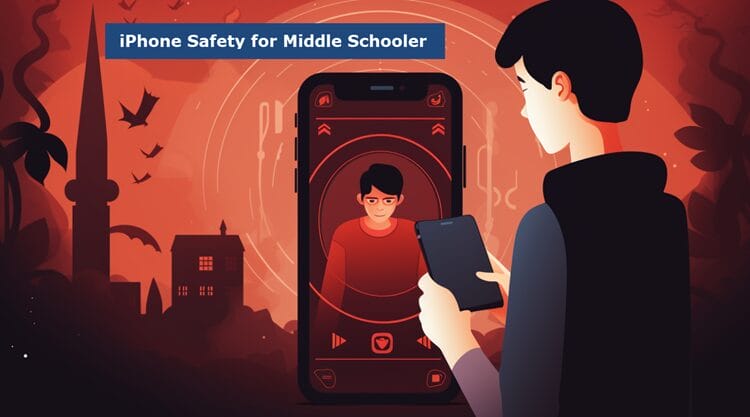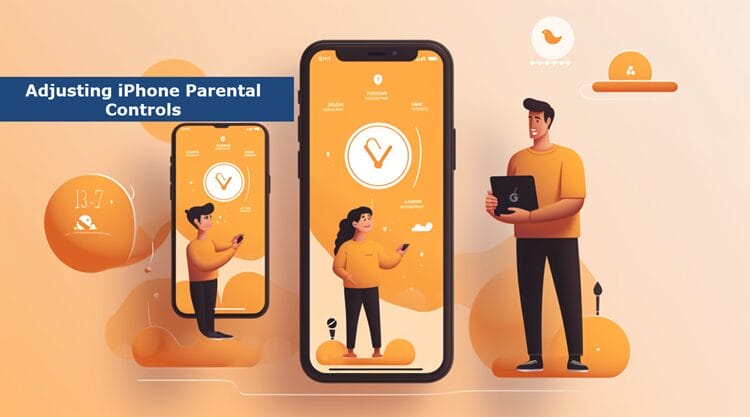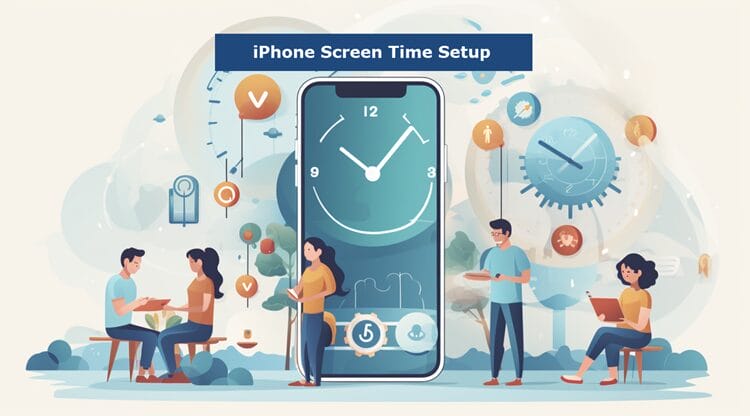I know, firsthand, how hard it is to keep track of children’s screen time activities. The guilt when you allow too much, the endless struggle to find a good balance, and the fear that this may affect their concentration and learning.
What if I told you that there might be some forms of screen time that contribute to the development of focused attention?
A study found that playing action video games 5 hours per week for 10 weeks improved visual selective attention in children.
Interested?
Let's dive into how we can use screen time to improve focus with some surprising strategies and insights.
Table of Contents
Screen Time Dilemma: Friend or Foe?
I often find myself torn between two sides during those ongoing debates on screen time and child development.
Some say screens hinder the ability of kids to concentrate; however, others posit that when used in moderation, they are beneficial for learning as well as development.
Let's dissect this dilemma and discover what screen time is all about:
Looking at Today’s Debate on Screen Time and Child Development:
- According to some specialists, excessive amounts of watching TV leads to problems with attention span and impaired cognitive abilities among young people.
- Others argue that limited exposure to screens can be an opportunity for enhancing learning while offering quality educational experiences for children.
Understanding How Controlled Use of Gadgets Can Be Beneficial:
- Educational apps have the potential of boosting children's attentiveness by involving them in interactive tasks that provoke critical thinking skills.
- For instance, using smartphones teaches children necessary skills such as problem-solving, creativity, and critical thinking.

Identifying Key Problems Concerning Excessive Screen Use:
Common consequences include short attention spans, low grades in school, and even poor behavior.
If not managed properly, it could encourage sedentary behavior where kids become dependent upon digital entertainment.
So now over to you,
It all depends on whether it will be your partner or enemy. As a parent or teacher, it is important to make sure it remains beneficial rather than harmful by striking a balance and establishing screen time management limitations that can help your child’s development.
When maximizing the benefits of screen time, one handy tip is to select quality educational content that matches up with their interests and learning objectives.
You can promote important skills for your child while they enjoy their screen time by choosing content that is both engaging and age-appropriate.
The key is moderation. Consider it as a useful teaching aid but also ensure that it does not dominate their life by fostering other activities.
Strategic Screen Time Promotes Cognitive Development
I am excited to share with you the Cognitive Benefits of Strategic Screen Time for your child's development. Interactive apps can be powerful tools to enhance your child's problem-solving skills.
Critical thinking has been encouraged among children through interactive apps. They make kids think outside the box by solving puzzles, completing challenges, and exploring virtual worlds.
Through this, children learn how to plan and deal with difficult issues. This improves memory and boosts self-confidence.
Educational games are very important in increasing the attention span. When children play a game that demands concentration and focus to win, their brains are learning how to keep their attention for longer hours.
This can help them concentrate better in other parts of their lives such as when doing homework or participating in classroom activities.
Video content can also be used as an effective learning tool that helps enhance information retention and recall.

Visual aids have been discovered to promote learning by making concepts more attractive and memorable. If children watch educational videos that present information briefly and clearly, they will be able to remember it for long and use it when required.
Here’s a useful tip: Consider putting specific time limits on screen time while selecting high-quality educational apps and games tailored towards your child’s interest areas as well as their learning goals.
In this way, you will ensure that your children not only have fun during screen times but also get cognitive benefits from it.
It’s all about balance and moderation. Screen time can be strategically used to develop your child’s focus ability and concentration levels while at the same time improving his/her learning experience.
Related: iPhone Safety Tips for Middle Schoolers
Top Focus Boosting Apps for Kids
Do you want tips on how you can make your child increase focus through screen time?
Let us explore the world of focus-enhancing apps for kids.
Overview of Apps Designed to Enhance Concentration:
These applications were meticulously designed with the intent to make children think hard and, ultimately, improve their attentiveness in class.
Some involve enjoyable brain teasers, puzzles, or tasks that subtly teach the brain how to maintain its position without being disturbed by any distractions around it.
Age-Appropriate Recommendations for Different Developmental Stages:
For younger children (ages 3-6), apps like ‘Endless Alphabet‘ or ‘ABCmouse‘ can assist in developing early literacy skills while also fostering focus through interactive gameplay.
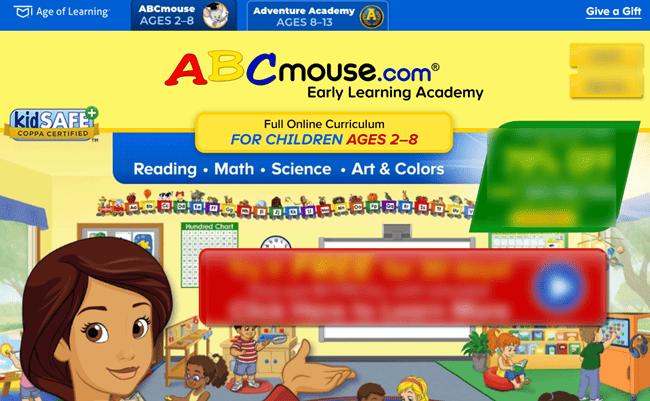
Older kids (ages 7-12) may find value in apps like ‘Peak’ or ‘Elevate’, which offer a host of brain-training exercises to increase focus, memory, and problem-solving abilities.
Features to Look for in Focus-Boosting Digital Tools:
- Engaging and Interactive: Look for programs that make your child play actively through games, challenges, and rewards.
- Progress Tracking: Go for apps that allow you to see the progress your child has made over time in terms of focus and concentration skills.
- Customization: Preferably choose applications that adapt themselves to the level at which your child is operating to present an appropriate challenge neither being too easy nor too tough.
Useful tip: It is better if children take a short break between app sessions by closing their eyes as well as resting their brains. This practice helps in boosting general attention span since it can make them more focused on what they are doing later on.
Why not make screen time count by incorporating focus-boosting apps into your child’s digital routine?
They have fun while doing this. At the same time, it sharpens their focusing abilities.
Setting up iPhone screen time controls can help you manage which apps your child uses and for how long, ensuring a balanced approach to digital learning.
Creating a Well-Balanced Schedule for Screen Time
In creating a well-balanced screen time schedule, improving your child’s focus and concentration can’t be overemphasized. As a parent, I know that structuring day-to-day routines that include productive screen time is vital.
Here is how you can do it effectively:
- Daily Routine Arrangement: Allocate fixed times for educational or skill-building screen activities. For example, set aside one hour for educational games or online learning platforms that are tailored to your child’s interests or areas they need help.
To ensure your child's eye health and focus, implement the 20-20-20 rule. After every 20 minutes of sitting behind the screen, let your child rest their eyes on something else that is at least 20 feet away from them for just about 20 seconds.

This simple practice can help prevent eye strain, promoting better focus and concentration.
Consider also adjusting evolving iPhone parental controls to further manage screen time effectively.
A balance must be struck between screen activities and physical engagements as well as social interactions.
This may involve some outdoor play, and sports such as yoga sessions among several others.
In addition to scheduling playdates, family time or virtual hangouts with friends ensure social interaction takes place.
Another useful tip is to create a visual schedule containing both screens and non-screen tasks for your kids to see what engagement they have scheduled throughout the day. This helps them appreciate the importance of variety and moderation.
When you create a balanced screen schedule that includes productive activities during breaks for eye health and physical-social interactions, it will enhance the focus and concentration of your children in effective ways.
Gamification: Turning Focus into Fun
Here’s how gamification enhances your child's focus and concentration especially when applied in the gamified learning context.
Ways Gamified Learning Apps Help Concentration:
- Gamified learning apps incorporate elements of games such as rewards, levels, and challenges to make learning enjoyable and engaging for kids.
- Kids are more likely to stay focused and be motivated when they are involved in interactive and fun activities.
Examples of Successful Gamification in Educational Technology:
- Prodigy is a math game that turns simple math problems into thrilling battles with virtual monsters, making the learning process interesting and captivating.
- Duolingo is an excellent example of a language learning app that gamified its points system through levels to maintain user engagement.
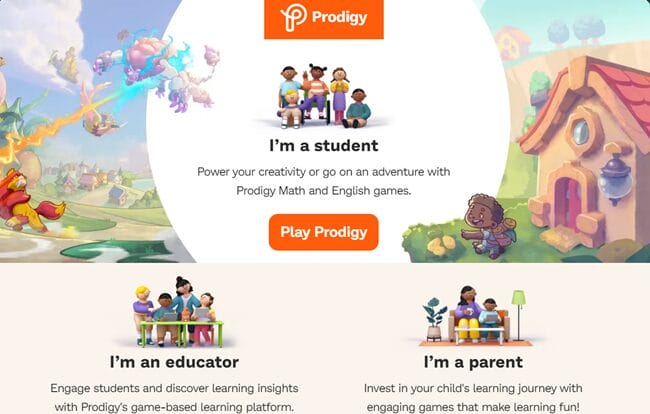
Tips for Parents on How to Gamify Non-Screen Activities for Sustained Engagement:
- Prizes or rewards can be given after completing tasks or reaching goals in real-life situations.
- Chore time can become a game if you set time limitations while challenging your child to beat the clock but still do a good job.
Through this way of incorporating gamified elements in the teaching experience, parents can make the journey of acquiring knowledge more enjoyable for their children. This, ultimately, increases their concentration and focus.
Why not try these strategies out as we work towards empowering our children through gamified learning experiences?
Monitoring and Managing Screen Time Effectively
The ability of your child to concentrate cannot be overemphasized.
Here are some practical tips on how this can be achieved:
Overview of Parental Control Apps and Features:
Consider using parental control apps to monitor and manage your child's screen time and promote digital literacy for kids. Look for features that allow you to set time limits, block certain apps or websites, and track usage.
Setting Realistic Goals and Limits for Daily Screen Use:
Set some boundaries on how much time your child spends using a screen every day to encourage constructive activities that build concentration. The key here is consistency since it helps children establish a healthy relationship with technology.
Encouraging Self-Regulation as Children Grow Older:
Involve your child in setting his or her own limits for screen time as they become more mature. Teach them the importance of breaks and other activities that help maintain focus and concentration in school.
One thing I suggest is having different blocks of time when screens are allowed. This way, they can know when it's right to use screens and when it's time for something else.
By effectively monitoring and managing screen time, you can help your child develop important self-regulation skills that will benefit them as they grow. Always bear in mind that it’s all about striking a balance suitable for your family.
Screen-Free Alternatives to Reinforce Focus Skills
I am familiar with the concerns parents have regarding screen time interfering with their kid’s ability to concentrate.
While screens may be captivating, there are times they overload young minds which is why I bring forth Screen-Free Alternatives to Reinforce Focus Skills that are helpful towards the development of your child.
For kids, mindfulness exercises can significantly improve attention spans. Just teach them simple breathing techniques or try leading them through short meditations to calm down their minds. This can improve concentration levels.
An interesting game is to let the child pretend that he/she inflates a balloon on each deep breath and then blows out the air at regular intervals; this not only teaches mindfulness but also focuses on breathing patterns by the child.
Physical activities help increase focus, especially those involving movement like yoga dancing, among others, or even participating in outdoor games that require high levels of attentiveness including coordination.
These activities allow them to burn off excess energy while increasing cognitive function and their ability to focus.
Brain-training games and puzzles are excellent alternatives to screen time. For instance, crossword puzzles, Sudoku, and memory games are great options for your child as they do not require screens.
These games challenge their problem-solving abilities as well as the ability to remember things and focus on details; all of which are vital in enhancing concentration and focus.
Benefits of Screen-Free Alternatives:
- Promotes calmness and reduces stress
- Boosts cognitive functions and retention of memory
- Enhances focus and lengthens attention spans
However, it all goes down to moderation when it comes to the time children spend on screens.
By including mindfulness practices, physical exercises as well as brain training activities in the daily life of your child, you can assist him or her nurture strong levels of focus and attention without relying only on screens.
Final Thoughts
To sum up, it is important to make use of screen time to help children develop focus and attention.
Through educational apps, interactive games, and conscious viewing, we can help them develop important cognitive skills.
Balance is key here – avoiding screens before they sleep can hugely affect their concentration abilities and general well-being. We want screen time to be an asset in our children’s learning process.
FAQs
Q: How do I limit my child's screen time without causing a tantrum?
Define the parameters upfront; provide alternatives like playing outside or engaging in creative arts while gradually decreasing the amount of screen usage daily.
Q: What are some good educational apps or games that increase concentration?
Get applications that have puzzles, intellectual challenges, and more interactive experiences for your kids’ minds to engage with as they try different ways to keep them attentive.

Q: How can I create a family screen-time schedule that works best for us?
Allow your child to set their own rules concerning the duration of usage, designate places where no screens should be allowed at all times, and include physical activity as well as relaxation breaks in between sessions.
Q: Is it okay if my child uses screens right before bed?
Avoid screens at least one hour before sleep because blue light interferes with sleep patterns. Encourage reading or listening to music instead.
Q: Does screen time actually improve my child’s cognitive abilities?
Choose content that involves problem-solving activities, critical thinking skills, and creativity so that you can them to improve your child’s cognition.


